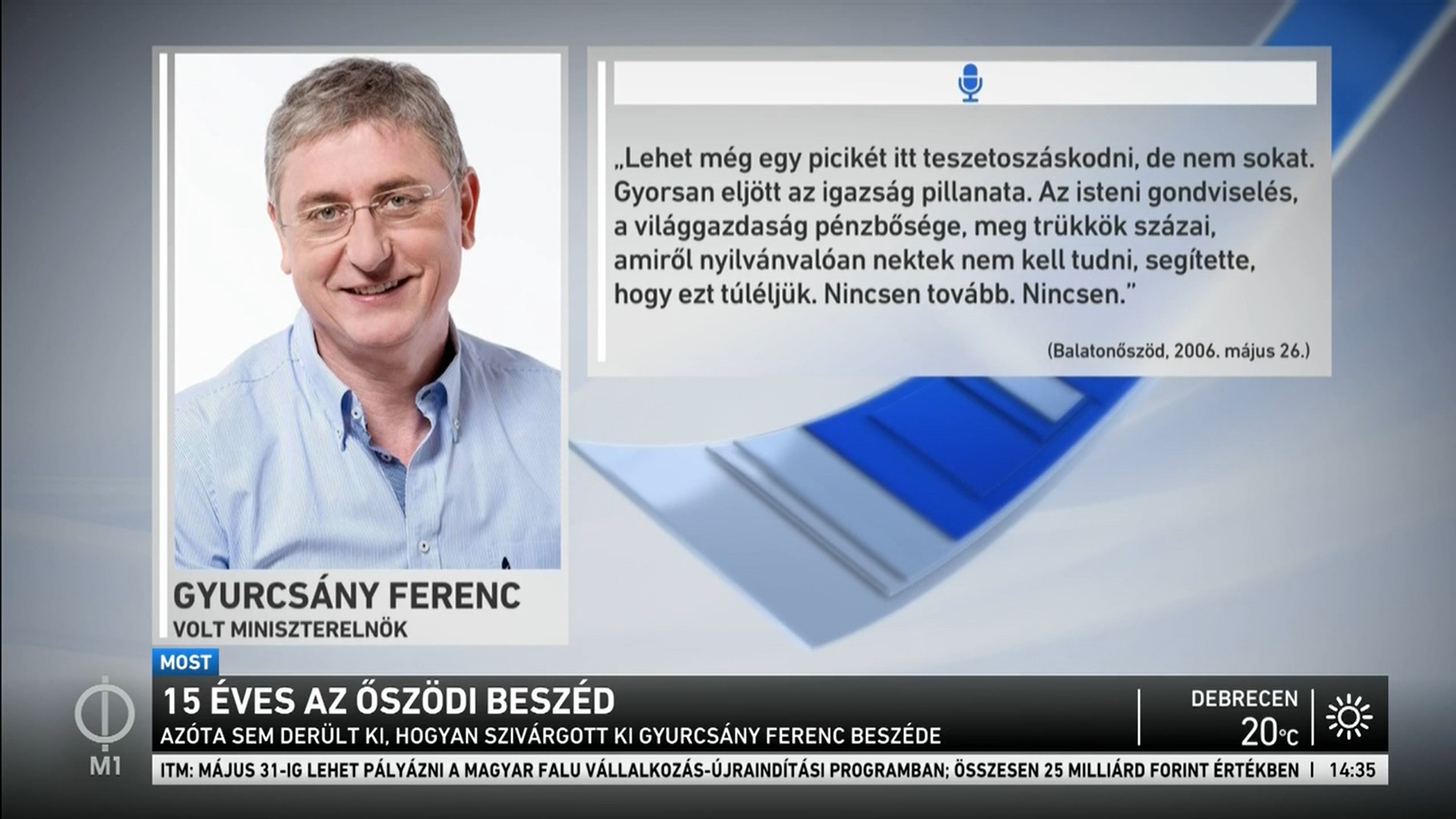Hungary joins European Union in condemning Belarus for forced grounding of airliner
- Stay updated on the latest news from Hungary by signing up for the free InsightHungary newsletter:
The European Council late on Monday made a quick decision to impose sanctions on Belarus over that country forcing a landing of a RyanAir flight from Greece to Lithuania on Sunday, putting to rest concerns that divisions among EU leaders would result in a fragmented response.
The flight from Athens to Vilnius was instructed to make an emergency landing in Belarus' capital of Minsk in response to an alleged bomb threat, and intercepted by a Belarusian fighter jet. Upon landing, Belarusian journalist Raman Pratasevich, a prominent opponent of the country's authoritarian president Alexander Lukashenko, was removed from the flight and detained by Belarusian authorities, as was his girlfriend Sofia Sapega, a Russian citizen.
The EU demanded the immediate release of the two detainees and that their freedom of movement be guaranteed, and urged a ban on Belarusian airlines from using EU airports or flying in EU airspace. It also urged EU-based airlines to avoid flying over Belarus.
Some observers said the grounding of the flight amounted to state terrorism or piracy.
The quick passage of the sanctions came despite speculation that Prime Minister Viktor Orbán could block a consensus response by the European Union, something he has done repeatedly in recent months.
Just last week, Hungary blocked a common European Union statement urging an immediate ceasefire in the Israel-Palestine conflict, the only of the bloc's 27 countries not to get behind the position. The week before, Hungary blocked a common EU statement criticizing China for restricting democracy in Hong Kong, a decision Germany's foreign minister called "absolutely incomprehensible."
Last August, Hungarian officials neglected to comment on the brutal crackdown on protests in Belarus following a highly contested presidential election which according to the official count saw Lukashenko re-elected with 80 percent of the vote. Hungary's Foreign Minister Péter Szijjártó then urged the European Union "to pursue dialogue with Belarus and avoid ostracizing it."
On Tuesday, Szijjártó told reporters in Dublin, Ireland that the forced grounding of the plane was "unacceptable," but did not mention the detention of the journalist Pratasevich and his girlfriend.
"Everything that the Belarusian authorities have done is unacceptable and must be rejected. I am pleased that the European Union has finally acted swiftly, decisively, and with sufficient vigor and unity on this issue. We are pleased that a response has been reached quickly," Szijjártó said.
Election campaign kicks off with attacks on Gyurcsány
Wednesday provided a taste of what voters in Hungary can expect from the election campaign leading up to the national vote next spring, with prominent governing party and opposition politicians trading jabs at one another on social media over an attack on former Prime Minister Ferenc Gyurcsány.
Prime Minister Viktor Orbán posted a video to Facebook Wednesday of an excerpt from the infamous "Őszöd speech," a leaked recording of then-Prime Minister Gyurcsány acknowledging in a May 26, 2006 closed congress of the ruling Hungarian Socialist Party (MSZP) that the government had lied and failed to achieve meaningful political or economic progress.
The speech, which was laced with profanities, set off a political crisis and led to days of protests and riots by anti-government demonstrators and a brutal crackdown by Hungarian police. Fidesz, then in opposition, demanded that Gyurcsány resign. Nearly 400 police officers and 326 demonstrators were injured in the unrest, and the scandal led to a permanent collapse in the popularity of the Socialist Party.
In his post, Orbán wrote, "It happened 15 years ago. Where were you when you first heard the Őszöd speech?" The invocation of the speech followed weeks of Fidesz communication alleging that Gyurcsány is the mastermind behind opposition parties' efforts to unite to defeat the governing party in 2022 elections.
In a comment beneath Orbán's video, Gyurcsány wrote, "Where were you when Fidesz looted the country?", and later posted a video of his own accusing Orbán of nepotism and corruption.
Also on Wednesday, the trailer for an upcoming feature film about the Őszöd speech and subsequent events premiered online. According to Index.hu and Origo.hu, a pendrive containing the trailer was delivered by motorcycle courier to the websites' headquarters. Gyurcsány called the upcoming film "the most expensive campaign film ever," and alleged that it was created with HUF 800 million (€2.3 million) of public funds. (Films produced in Hungary are entitled to state support in the form of tax credits.)
Twelve protests planned against Fudan University, skirting public gathering rules
A protest scheduled for June 5 against government plans to establish a Budapest campus of an elite Chinese university will be split into 12 separate events in order to ensure compliance with limitations on public gatherings.
The demonstration, organized by political group Szikra Mozgalom (Spark Movement) and prospective opposition parliamentary candidate András Jámbor, is titled "For the Student City, Against Fidesz," and will involve a march from Budapest's Heroes' Square to the Hungarian Parliament.
While many pandemic rules were lifted last weekend as 5 million people received at least a first dose of a vaccine, outdoor events are still limited to 500 participants. To get around this obstacle, which Jámbor called "absurd," organizers registered 12 separate demonstrations with police to ensure all demonstrators could legally participate.
The demonstrations will depart Heroes' Square from differing locations and at differing times, and merge on Kossuth Square for a large protest, where only holders of an immunity certificate may enter. Smaller demonstrations under 500 people will be held in the vicinity, which can be visited by anyone, organizers say.
According to the demonstration's event page, the protest was called in defense of plans to establish a Student City along the Danube river in southern Budapest, a project which has been brought under threat by government plans to establish a large campus of China's Fudan University on the site. You can read more of our coverage of Fudan University here, here and here.
Pace of vaccination slows as hesitancy remains high
"Given the number of registrants, it's not impossible that the number of vaccinated people could reach six million, but it really depends on the people now, so it's their individual decision and responsibility to take the vaccine," Prime Minister Viktor Orbán said in a radio interview on May 14.
Hungary's vaccination campaign, using jabs procured from Russia and China as well as through the European Union, has given it the second-highest rate of vaccination in the EU: as of Thursday, 5,056,262 people had received at least a first dose, representing over 52 percent of the population and well exceeding the EU average of 36.3 percent.
But the pace of vaccinations has slowed in recent weeks as most people who wish to receive a vaccine have already been inoculated. While Orbán predicted in April that 7 million people would have received a jab by the third week in May, more recent statements from government officials suggest reaching even 6 million might be difficult to achieve.
"We can get to five and a half, or if we're very optimistic, six million vaccinations," Orbán's chief of staff Gergely Gulyás said in a press briefing last Thursday. Experts estimate that 6-7 million fully vaccinated people will be necessary to reach a level of social immunity that could effectively protect against possible coronavirus mutations.
Early this month, the government approved HUF 16 billion (€46 million) for an information campaign aimed at increasing the number of vaccinations. While nearly all people who have registered to be vaccinated have already received a jab, polling by the Central Statistical Office shows that around 65 percent of Hungarians would possibly or definitely receive a vaccine, about 13 percent above the current level.
It is hoped that government-issued "immunity certificates," which provide holders with access to indoor dining rooms, sporting events, hotels, spas, concerts, museums and other recreational venues, will provide an incentive for people to get vaccinated.
Meanwhile, with unused vaccines piling up, Gulyás announced last week that Hungary would not participate in the EU's next round of vaccine procurements, arguing that there are enough doses already in stock or under order to ensure supplies of a third booster shot should the need for one arise.
Pandemic indicators this week dropped to levels not seen since early October, and the percentage of positive tests has dipped below the 5 percent recommended by the World Health Organization. The seven day rolling average of coronavirus deaths currently stands at 39, down from a high of 269 in mid-April.
InsightHungary will be on a summer break for the next three weeks. Please check back on June 24 for the next weekly newsletter, where we'll continue bringing you the most important stories from Hungary.




